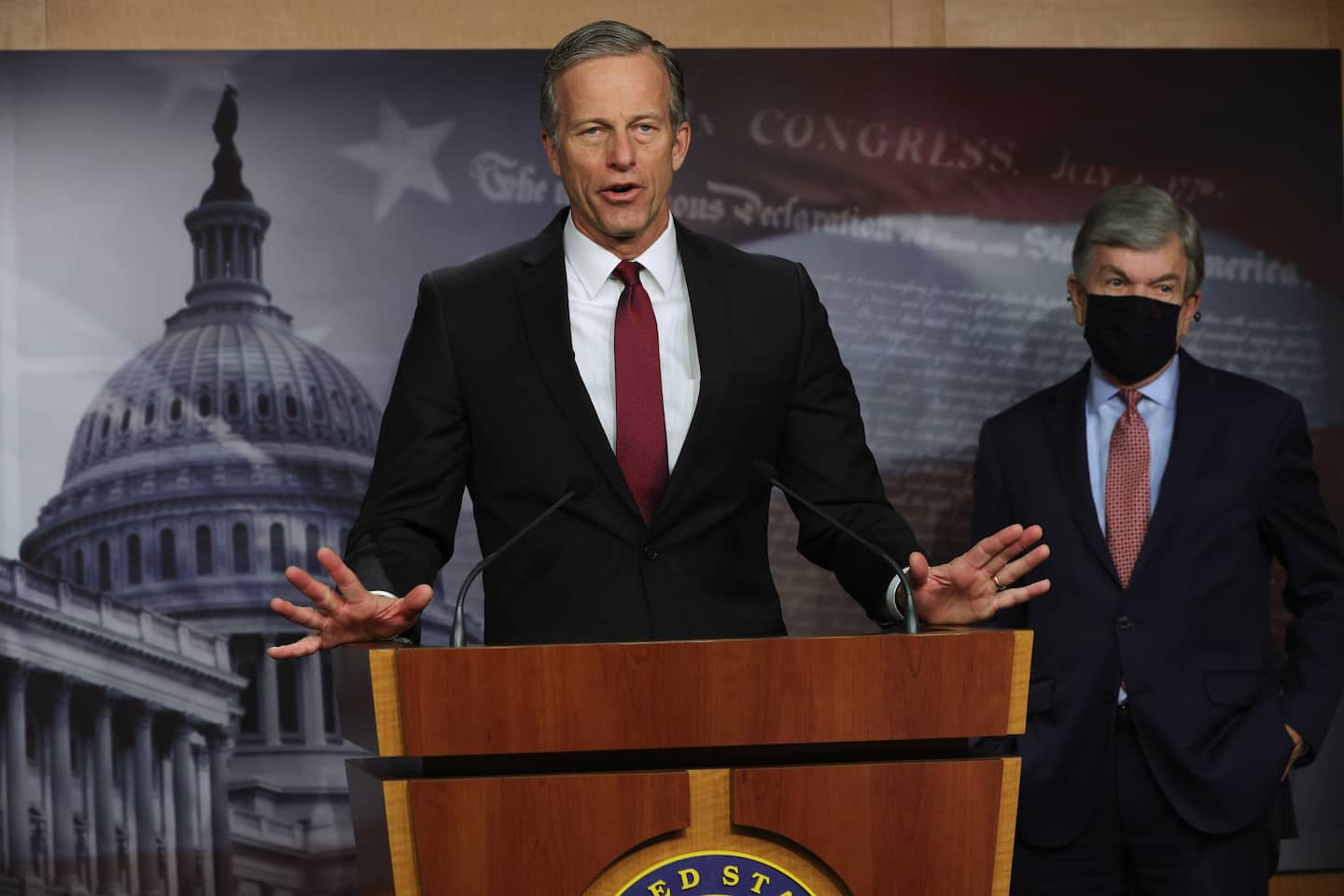Republicans sound early note of opposition against $3 trillion White House infrastructure plan

The backlash on Capitol Hill came as White House officials prepared to present Biden with a plan to proceed on infrastructure spending in potentially two parts. The first would be focused on traditional investments in roads, bridges and broadband Internet access, as well as spending for green-energy initiatives. The second would focus on Democrats’ longtime domestic priorities, including free community college, universal pre-K and new programs to help low-income families and children.
The approach miffed Republican lawmakers, including those in the Senate who had met with Biden and top White House officials in recent days to discuss the matter. Some in the GOP signaled they might be disinclined to try to broker a deal on infrastructure reform if Democrats put consensus items in one bill and then sought to shepherd more-contentious policies, including tax hikes, in another shortly after.
“It’s a pretty cynical ploy to try and appeal to Republicans to vote for all that stuff, and then do reconciliation to do all the other hard stuff,” said Sen. John Thune (S.D.), the chamber’s Republican whip, referring to a legislative maneuver that requires Democrats to secure only a simple majority to pass bills in the Senate.
Democrats relied on reconciliation to advance the $1.9 trillion coronavirus relief law known as the American Rescue Plan over GOP objections this month. With infrastructure, though, Thune said the GOP is unlikely to “take the bait on that.”
Other Republicans said they staunchly opposed early reports that Biden may seek to finance the total $3 trillion in new infrastructure spending through a slew of tax increases mostly targeting the most profitable corporations and highest-earning American families.
“I suspect, based on some of President Biden’s comments, he wants a massive tax increase, and he wants to allocate the tax responsibility in this country on the basis of class,” said Sen. John Neely Kennedy (R-La.). “That’s a hell of a way to make tax policy. You don’t make tax policy on the basis of class.”
The early burst of Republican opposition highlights the tough legislative wrangling on the horizon for Biden as he seeks to deliver on some of his most ambitious promises, many dating back to the days of the 2020 presidential campaign.
Biden has pledged to upgrade the country’s aging innards, unwind generations of economic inequality and make the tax code more fair — all the while trying to restore political unity. But his legislative agenda quickly has collided with the reality of the policymaking process in Washington, where Democrats’ narrow majorities make Republican opposition all the more potent.
Even some Democrats remain steadfastly opposed to changing Senate rules to make Biden’s legislative priorities, including infrastructure reform, easier to pass. Others have insisted Biden must obtain GOP support, and pay for the package at least in part, if it is to prevail.
“As long as it’s paid for,” said Sen. Joe Manchin III (D-W.Va.), a centrist swing vote in the chamber, when asked Tuesday about the potential $3 trillion price tag of a new infrastructure bill. “This country needs to rebuild itself.”
For now, the White House has offered little formally about the president’s infrastructure agenda. White House spokeswoman Jen Psaki tweeted late Tuesday that any speculation about the plan’s contents is “premature,” adding that Biden does not plan to “lay out additional details this week.” A spokesman did not immediately respond to a request for comment.
Some Democrats still appeared to encourage the Biden administration Tuesday to forge ahead with a sweeping vision for infrastructure reform, offering early support a day after the president sought to rally party lawmakers at a private retreat around the next signature element of his economic agenda.
“All I can say is this country faces enormous structural crises facing the working families of our country,” said Sen. Bernie Sanders (I-Vt.). “And we’ve got to figure out the most effective way to accomplish that goal.”
Among Republicans, however, the president’s potential pathway for infrastructure reform stirred fresh unease.
On Tuesday morning, House Republicans boycotted the House Ways and Means Committee’s standard “members’ day” hearing out of concern about the future of an infrastructure package. The session, where lawmakers in the chamber typically present their spending priorities, raised fears among the panel’s GOP leaders that it was merely a “check the box” exercise — allowing Democrats to move a contentious infrastructure package without having to hold a fuller hearing.
“This is just another example of Speaker Pelosi’s partisan gamesmanship to produce legislation that will have enormous consequences for taxpayers,” wrote Rep. Kevin Brady (Tex.), its top GOP member, along with other panel Republicans, referring to House Speaker Nancy Pelosi (D-Calif.).
A spokesman for the committee’s chairman, Rep. Richard E. Neal (D-Mass.), said Democrats had hoped the hearing would be the first step of many toward a bipartisan package.
Across the Capitol, Sen. Shelley Moore Capito, (W.Va.) the top GOP lawmaker on the Environment and Public Works Committee, said she harbored her own reservations. She told reporters Tuesday she had expected a much different approach after meeting with Biden and his top aides about potential legislation over the past few weeks.
“I had a conversation with the president, we went to the White House, so hopefully we can continue this conversation,” she said, “but it’s going way beyond the scope of what I thought an infrastructure package would be.”
Republicans, including Capito, say they support major new investments in the country’s physical infrastructure. But the West Virginia lawmaker said it “presents a challenge to every Republican” to vote for that spending if Democrats at some point seek to move other, more contentious elements through reconciliation.
“I think that makes it a problem,” she said.






